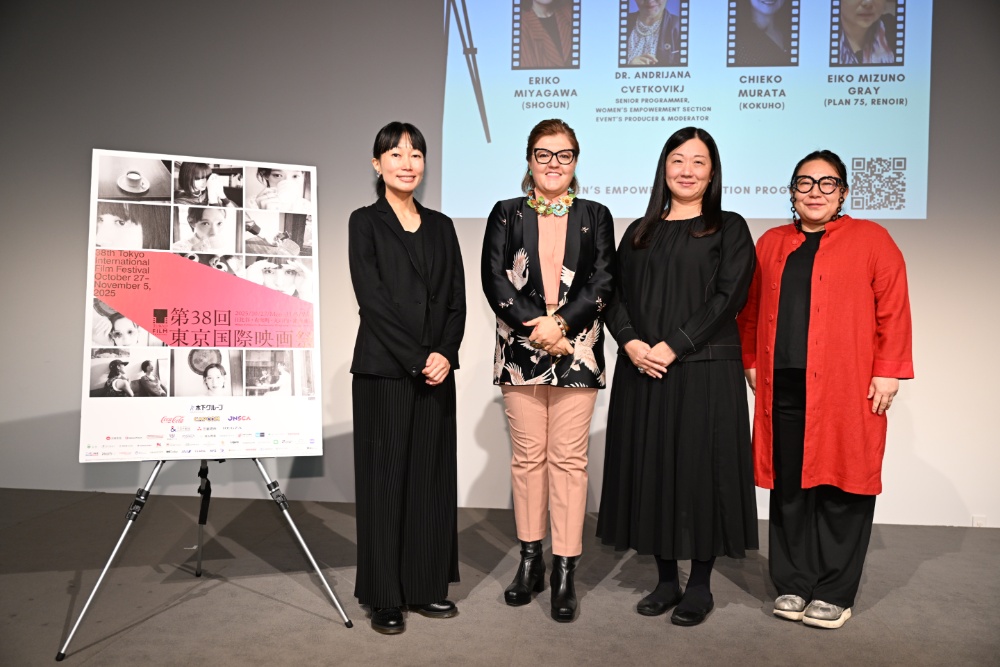
Women's Empowerment in Japanese Film: A Conversation with Three Trailblazing Producers
At the Tokyo International Film Festival, a special event under the Women’s Empowerment section brought together three accomplished female producers from Japan. Miyagawa Eriko, Eiko Mizuno Gray, and Murata Chieko shared their journeys and insights into the film industry during a moderated discussion. Their stories highlight the diverse paths that led them to their current roles and the unique challenges they have faced along the way.
Miyagawa Eriko, who co-won an Emmy for her work on the hit streaming series "Shogun," began her career as an interpreter on the set of Quentin Tarantino's "Kill Bill: Vol. 1." She recalls being amazed by the complexity of each shot and the chaos involved in filmmaking. "I fell in love with the process," she said. Working with Tarantino, she described it as both a gift and a curse, noting that his genius made it clear she could never be a director herself. Instead, producing felt natural to her because she enjoys facilitating projects and being involved in every aspect of the creative process.
Eiko Mizuno Gray started her career as a volunteer for the Toronto Film Festival and later moved into publicity work. Her interest in producing grew when she realized that understanding the entire filmmaking process from start to finish was what she wanted to pursue. She eventually founded Loaded Films with her husband, Jason Gray, and has since worked on notable projects such as "Plan 75" and "Renoir," which have received critical acclaim at international film festivals.
Murata Chieko studied directing, acting, and cinematography in the United States but soon realized she wasn’t particularly skilled in any of those areas. This realization led her to producing, a role that suited her strengths. After returning to Japan, she began her career as an assistant to an executive producer and gradually climbed the corporate ladder. Her career highlights include positions at Fox International Production and Sony Pictures Entertainment, where she served as senior vice president for production in Japan and Southeast Asia. In 2020, she became senior vice president of Aniplex, where she played a key role in producing the successful "Demon Slayer" animations and the live-action film "Kokuho."
When asked about what makes a producer valuable, Miyagawa emphasized the importance of listening, flexibility, and empathy. She believes that understanding others’ perspectives and aligning with their priorities is crucial. For Murata, experience in navigating international film festival programming and networking with filmmakers has been instrumental in her success.
The conversation also touched on the impact of "Kokuho," a live-action drama set in the world of Kabuki that earned $109 million since its June release. Murata acknowledged the contributions of directors, crew members, scriptwriters, and actors, while also highlighting the value of her experience in connecting with international collaborators. She noted that many filmmakers expressed a desire to see more films like the masterpieces of Ozu and Kurosawa, leading to the creation of a grand studio film with lavish sets, costumes, and a long running time.
Mizuno Gray, who has always taken an independent approach to producing, emphasized the importance of selecting projects that align with the filmmaker’s vision. She stressed the need to understand not just the creative abilities of filmmakers but also their personal motivations and storytelling goals.
Miyagawa highlighted the significance of packaging a project effectively, ensuring a balance between the director, scriptwriter, cast, and the overall story. Meanwhile, Murata pointed out that her position as a company employee in Japan requires her to focus on creating content that generates revenue for her organization.
Each of these producers brings a unique perspective to the industry, reflecting the diversity of experiences and approaches that contribute to the success of Japanese cinema on a global scale. Their insights offer valuable lessons for aspiring filmmakers and producers looking to navigate the complex and competitive world of film.

Post a Comment